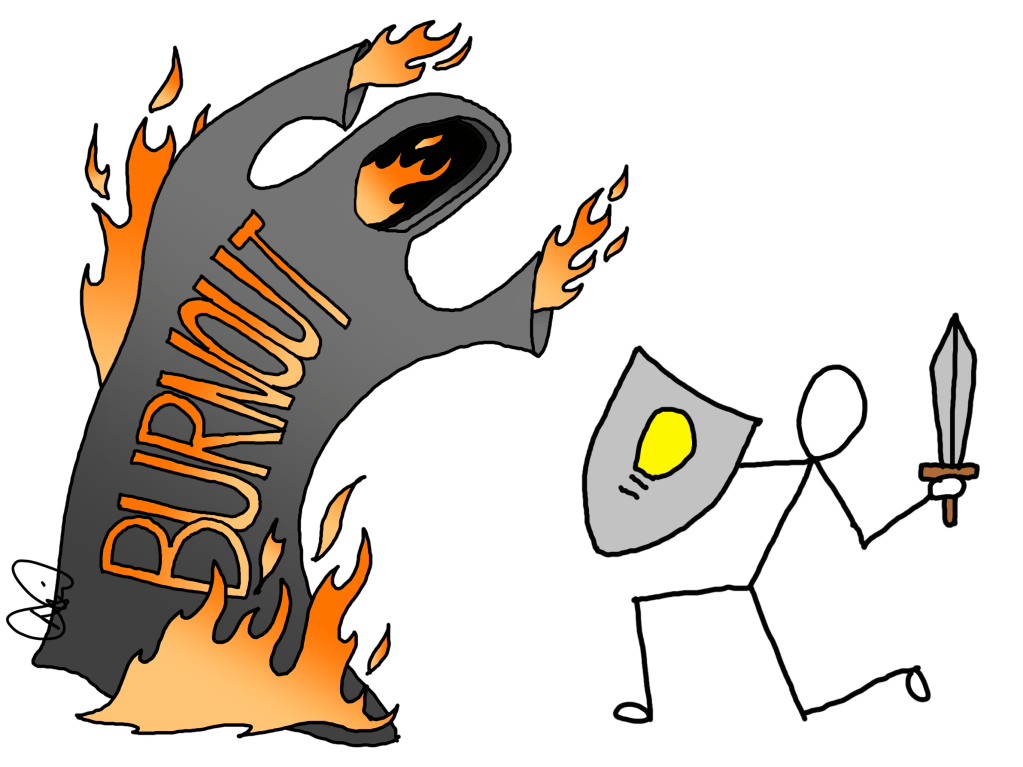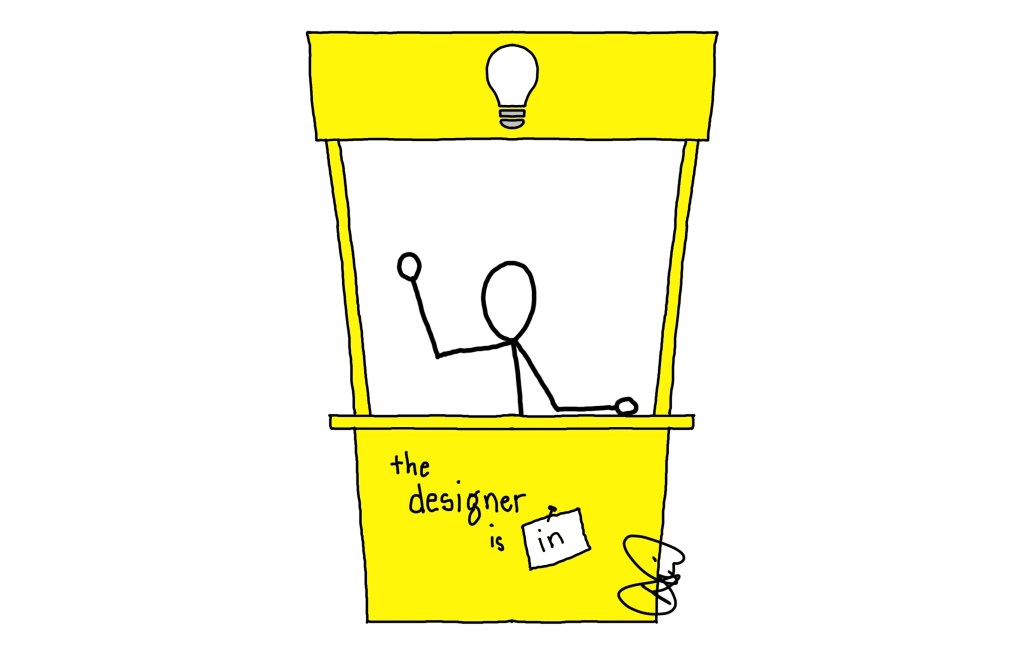
My journey towards the light was not always easy or straight, and a chaotic turning point grew increasingly likely as I pushed towards my fortieth birthday.
I spent the entirety of my 30’s (and change) split between the worlds of university teaching and freelance designing, periodically shifting the balance from one to the other as whims, needs, and market demanded. Though I had entered academics as a temporary gig to provide a stable income while I launched my own architectural lighting design company, I gradually found myself getting serious about teaching. I enjoyed interacting with students and watching them grow. I found creative pleasure in designing processes and coursework in lighting design. The academic calendar was no small delight, bringing seasonal changes and long breaks I could spend with my family. I even enjoyed aspects of the bureaucracy and politics of large state universities.
But there were parts of the academic life that grew increasingly difficult for me to manage. Always impatient, I pushed forward and created new classes and chaired committees. I made chair of my graduate program in lighting design, then was promoted to co-director of our division of design, technology, and management overseeing seven graduate programs, six undergraduate programs, and over twenty faculty. Parallel to my rise to administration was growth in my notoriety as a designer born of my focus on what I then called Convergence Design, or the overlapping region of dramatic architectural lighting and realistic theatrical lighting. I peaked when I walked into a theater in Los Angeles and introduced myself to a technician who promptly said “hey, I know who you are, I just read an article you wrote.” Pride does indeed go before the fall.

All this time I had been pushing towards tenure, a coveted academic status that has somehow survived for centuries and remains the primary employment paradigm for major universities. I had six years to prove that I was an educator of “national significance” and secure a permanent position with the university. Ahead in my seventh year would be an intense review period, after which I would either be welcomed into the fold or given a one-year terminal contract. Tenure-track can feel a bit like a gladiatorial battle, long years of hard work and then an anxious wait to see if Caesar’s thumb would go up or down. There is no ambiguity; you have a job or you do not.
I was building my “national significance” based on my own career that straddled architecture and theater to deliver a unique approach to lighting. I began writing articles, created new coursework, and enjoyed good success in recruiting efforts. But the department of theater, or more accurately the tenured faculty of the department, saw my architectural focus as a distraction and gave me a stern warning: drop the architecture work or risk being denied tenure.
This was extremely frustrating for me. Only one of the faculty knew anything about the lighting industry; I was to be judged primarily by actors and directors who were so familiar with their parallel careers in television, film, and even audiobooks that they did recognize that architectural lighting was a similar adjacent career for me. I failed to convince them that the theatrical lighting designer with the most Tony awards in history made most of his money from his architectural lighting company, and that many of the super-successful theatrical lighting designers did likewise. I tried unsuccessfully to demonstrate that architectural lighting made my theatrical lighting better anytime there was a building on stage, a house, a hotel, a diner, even a castle.

I was failing, and I did not like it one little bit. Combined with the reality that I sometimes worked in excess of one hundred hours a week at the university, I found the tenure track unbearable. I left my first university to try a second and found no lasting relief.
In one particularly dark stretch of feeling trapped in my situation, unable to see a way out, I found myself feeling that I understood why someone might end their own life. I have battled anxiety and mild depression since my teenage years, but this was the first time I ever felt this dark. I immediately re-engaged with counseling which kept me afloat, but I needed some kind of light to fight the darkness in my life.
My struggles with tenure contributed towards (but paled in comparison to) the strain felt at home. One of my young children, upon hearing that I would be home for dinner one evening, exclaimed with surprise: “daddy’s coming to dinner?!” I was gone before my children woke, absent many days, and home long after they went to bed. During tech week, the intense period of rehearsals leading to the opening night of a show, I might only see my family in brief passing. When my department chair called me in, shared that the faculty were happy with my work but needed more from me, I knew it was my last semester as an academic.
I needed an escape route, and light became my answer. But I was giving up the only full-time lighting job in my semi-small university town. I needed to start something new.
Looking back, I can see an entrepreneurial thread weaving through my life. In high school, I contracted with a local seed corn company, hired my own crew, and worked in the fields to raise money for dates and clothes. In college, I started a DJ business and got paid to do lighting for concerts and musicals. On my first job in Mississippi, I took freelance gigs drafting to pay off some debts and buy a DVD player. As an academic, I kept a busy freelancing schedule doing architectural and theatrical lighting. This time it would be different: my side gigs needed to become my main gig and needed to pay the bills for my family. I was just cocky enough to believe that I could do it.
I handed in my resignation and started dreaming up ideas on how to make a living as an architectural lighting designer in a community with none. How hard could it be? Before I got started, however, I had a little trip to take. Or, as it turns out, a rather Big Trip.
My wife, who is quite a bit smarter than I and has a gift of seeing things others cannot, realized that we had a unique opportunity in front of us, a once-in-a-lifetime chance to make lasting memories with our children between the grueling academic career and starting a small business. Since I was going to be self-employed, she asked, could we not take a few weeks in between jobs to travel with the kids? We were fortunate to have a little cash on hand to help with the transition, and some good friends generously offered to loan us their pop-up camper, so we figured we could pull it off.
I could write a book about what we called the Big Trip (and four more that followed) and all the ways it fundamentally altered our family life. We spent about six weeks on the road, camping across Ohio, Pennsylvania, New York, Vermont, New Hampshire, Maine, Massachusetts, Maryland and West Virginia. We visited state parks and Acadia National Park, strolled New York, Boston, and Washington DC, and hiked in beautiful fall colors across New England. It was a little scary at first, as we had never camped well (our previous big family outing to the Great Smokies was a damp disaster) and never camped in any kind of trailer. We learned a lot in the first few weeks out, and overall the experience was incredible and provided much-needed rest and rejuvenation.

I always credited nature as one of the key benefits of the trip – being outdoors, hiking in forests, seeing the stars over the Atlantic Ocean off the coast of Maine – but looking back I think light itself played an important role in my recovery. Unknowingly, I was resetting my body to natural time, stepping out of the theaters and lighting classrooms that were intentionally dark and devoid of windows. I spent too much of my time in dark caves as an academic; the Big Trip was the polar opposite. We went inside our camper only to avoid rain or sleep. Nearly every other minute from sunrise to past sunset was spent outdoors. It was an extraordinary privilege and gift.
Once we were unpacked and the pop-up cleaned and returned to our friends, I turned my attention to starting a business. Perhaps “starting” is the wrong term, as I had been practicing architectural lighting in one form or another for nearly 15 years and already had a few projects going. More accurately, I began transitioning my part-time side gig into my full-time job.

I set up shop in my basement and then in a converted attic above my garage, created a company name (doesn’t David K Warfel Lighting Design LLC just roll off the tongue?), and started meeting architects that might bring me projects. I was unafraid, utterly convinced of my potential for success born of years of experience (and no small amount of unearned advantages like the color of my skin and my gender).
Light, or at least lighting design, was my escape route from academic burnout, but I still had much to learn about running a business and light itself. I took every job possible, from pizza restaurants to middle schools, and even found some really fun projects like escape rooms on Royal Caribbean cruise ships. The business brought in money, some years more than others, but gaining traction was difficult and I learned that sole proprietorship consists of two phases: not enough work to pay the bills or too much work to fit into the day. The easy middle – just the right amount of work – existed only in the split second between too much and too little.

Building on my penchant for entrepreneurialism, lighting design helped me escape the burnout and disappointment of university life. But getting out the door was only the beginning of transformation that would find me first thinking less about lighting design and more about light itself.
I would continue to struggle for the next few years until I discovered light as a gift.
Read more of my autobiographical Finding the Gift posts HERE.

David, you also have a gift for writing…..I didn’t want to stop reading until I got to the point where we first met…..it was a new beginning for us as well! Excellent piece, sir. Keep up the great work. Looking forward to #7!!
LikeLiked by 1 person
Thank you, Patrick! That day in Dallas could probably be its own post. 🙂
LikeLike
Your time in the small university town as a teacher will never be forgotten! Thanks for the lighting appreciation you grew within us.
Steve
LikeLiked by 1 person
Your kind words warm my soul, Steve!
LikeLike